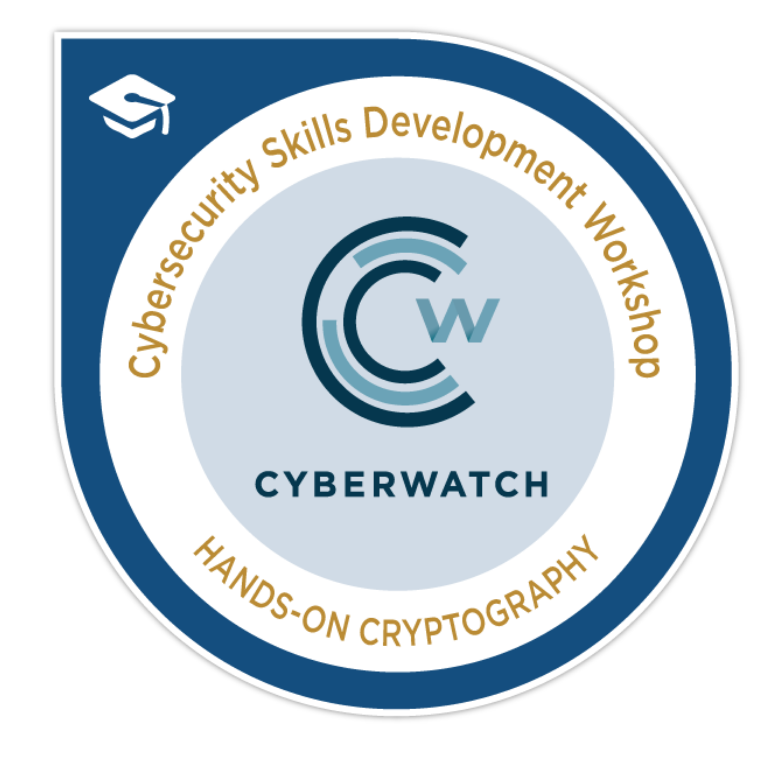National CyberWatch Center's
Call for Cybersecurity Skills Development Workshop Proposals
About
Designed to develop capabilities that are essential to the effective performance of cybersecurity job roles, as well as helping to grow faculty and program capacity at 2/4-year schools. Proposals accepted on a rolling basis are evaluated in the order received.
Compensation
- Grant-supported advance stipend for workshop development
- $2,500 per workshop upon acceptance of course learning materials
- Facilitator pay for Workshop delivery
- $3,000 to 8,000 per full-day based on percentage of capacity sold
- Royalties of Workshop content subscriptions after the first year
- 10% of subscription fees for workshop content license renewals
Differentiator
Traditional workshops focus on exposure to new techniques, tools, and instructional materials (i.e., train-the-trainer) by conveying information about a topic. While valuable information is provided, workshop attendees don't usually have sufficient time to develop a deep understanding and to practice application of new knowledge necessary to develop skills. Assessments are often omitted or are limited to a summative test without a detailed review of errors or omissions. Workshop attendee are on their own to address any failed understanding or misapplications after the workshop ends. Consequently, traditional workshop attendees frequently fail to retain knowledge of workshop concepts and techniques or are unable to transfer the new learning to workplace/academic scenarios.
By contrast, the Cybersecurity Skills Development Workshops (CSDWs) are designed to develop mastery in skillfully applying techniques, tactics, tools, protocols, or procedures through competency-based instructional designs. These workshops focus on developing deep understanding through continual, formative assessment of knowledge development designed to identify and eradicate misunderstanding and misconception. Furthermore, CSDW participants practice applying the newly-gained knowledge under varying conditions or scenarios to facilitate transfer to the workplace/academic setting. Finally, CSDW attendees receive a year's subscription to a self-paced instructional system to continue their development after the workshop ends. Consequently, CSDWs assist in raising the capability maturity and readiness of students, faculty, practitioners, or policymakers to adopt and adapt the latest effective practices for performing cybersecurity functions and roles.
CSDWs apply advances in:
- Formative assessments, which are designed to detail the areas of strengths and weaknesses of the learner, as continually applied, and guide the next learning path
- Adaptive learning systems, to ensure the achievement of mastery in understanding, applying, and adapting cybersecurity practices
- Micro-credentialing, to recognize the level of capability maturity exhibited by the workshop participant as Proficient, Competent, or a Master of the new capability
Workshop Formats
Ranging from half-, one-, or two-day workshops focused on a single capability, to multi-week virtual offerings.
CSDW Facilitator Deliverables:
- Concept Matrix (glossary)
- Open-sourced or developed instructional materials
- Open-sourced or developed hands-on exercises (e.g., procedures to be executed)
- Scenario-based exercises (e.g., the way in which you administer a system depends on the operating system)
Proposed Workshop Domains
Like a textbook, a traditional workshop is divided into some number of topics/domains, with domains addressing several defined concepts. In contrast, a CSDW is organized by the responsibilities to be competently performed in the workplace, which is decomposed into the tasks to be executed and the concepts and techniques required to skillfully perform a task.
Proposals for Workshop domains might include, but are not limited to the following:
- Analyze network traffic
- Limit information system access to authorized users and processes
- Authenticate (or verify) the identities of those users, processes, or devices, as a prerequisite to allowing access to organizational information systems
- Monitor, control, and protect organizational communications (i.e., information transmitted or received by organizational information systems) at the external boundaries and key internal boundaries of the information systems
- Update malicious code protection mechanisms when new releases are available
Example CSDW
Hands-On Cryptography


